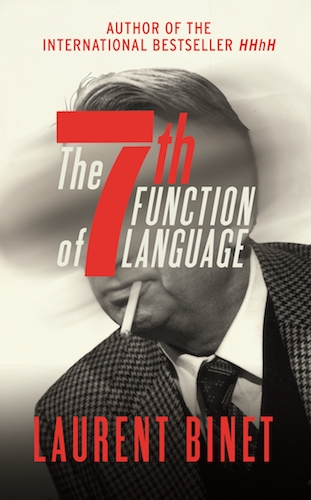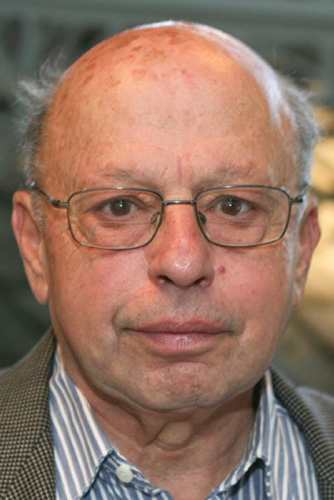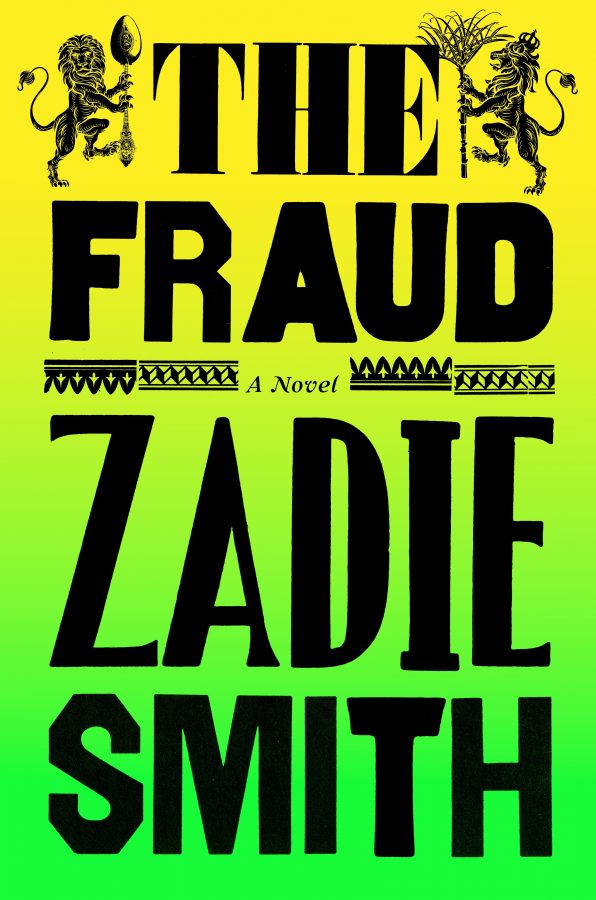On the afternoon of 25 February 1980, Roland Barthes was run over by a delivery van in the Rue des Écoles in Paris, just in front of an extraordinary institution, the Collège the France, a place where luminaries like Barthes deliver lectures to the world at large on all manner of recondite topics, free of cost. He died in hospital one month later of pulmonary complications which may have been triggered by the accident, although no clear evidence of a link was found. Accordingly, the authorities decided that no further investigation was required. Or so they said. In this outrageously extravagant novel, Laurent Binet spins an elaborate fable about the circumstances of the death of the author of Mythologies and Writing Degree Zero.
Binet, who was born in 1972, shot to prominence in 2010 when his novel HHhH won the Prix Goncourt for a first novel. HHhH is a profoundly eccentric account of the assassination in 1942 of Reinhard Heydrich, known as ‘Himmler’s Brain’ and the ‘Butcher of Prague’. Two years later Binet published a journal he kept during François Hollande’s presidential campaign. His second novel focusses on the year leading up to the election of François Mitterrand in May 1981 as the first Socialist President of France’s Fifth Republic. What Mitterrand’s rise to power had to do with a seemingly banal accident on the Rue des Écoles occupies the bulk of this brilliantly preposterous novel, an erudite The Da Vinci Code, if you like, with this difference: Binet knows how to write.
The accident in front of the Collège de France might have been no more than an unfortunate incident, noted in the statistics of France’s annual road toll and forgotten. So when Superintendent Jacques Bayard of the police intelligence service is instructed to investigate the accident, he is initially puzzled why he is required to look into such a seemingly open-and-shut case. He soon realises what is at stake. When he was trying to cross the Rue des Écoles, Barthes was on his way back from lunch with Mitterrand in the politician’s apartment in the Marais. Valéry Giscard d’Estaing, the conservative President seeking re-election the following May, found out about the luncheon and grew concerned that there might have been a dastardly plot hatched by those lefties to unseat him. Accordingly, in the time-honoured manner of presidents and prime ministers all over the world, he called in the forces of law and order to find out what on earth had been going on.
Bayard has little difficulty establishing the circumstances of the accident. The driver of the van was Bulgarian; though he had consumed some alcohol he was well below the legal limit. As Barthes lay stunned in the gutter, a small crowd gathered around him; two men, both claiming to be doctors, examined him. Barthes had nothing on him when he arrived in hospital: certainly no document, no money, no identity card. Unable to speak, he answered Bayard’s questions by nodding or shaking his head. He grew agitated and refused to respond when Bayard asked him whether he had been carrying anything like a letter or a document. The thought soon crossed Bayard’s mind that whatever Barthes had in his pocket had been filched by the so-called doctors at the scene of the accident.
Barthes had been identified by a colleague at the Collège, a certain Monsieur Michel Foucault, so, in accordance with well-established police procedures, Bayard sets out to interview him. He finds that this Monsieur Foucault is delivering a lecture to an enormous audience that overflows into another lecture hall where the proceedings are relayed through loudspeakers. Bayard cannot make head or tail of what Foucault is banging on about: ‘Even if, for various philosophers or views of the universe, the world might well turn in one direction or another, in the life of individuals time has only one direction’. Bayard wonders if ‘this guy earns more than he does’. At the end of the lecture Bayard buttonholes Foucault who declares at first that he refuses ‘to be confined by the authorities’, assures the policeman that Barthes is already dead because he had been killed by the ‘system’, and finally reels off the names of Barthes’s principal enemies. And that leads Bayard into the heady world of semiology, according to which every object, every gesture, every utterance, no matter how commonplace, transmits complex meanings and implications.
To find out about semiology, Bayard learns, he must go to the university at Vincennes, a district just outside the Paris arrondissements. That university – which would be dissolved and transferred to Saint-Denis later that year – was founded in the wake of the 1968 student upheavals to provide a sop to all who were demanding reform of France’s sclerotic educational system. Bayard finds there a hideous campus filled with stalls flogging all kinds of merchandise, like a Middle Eastern souk, covered with obscure and obscene graffiti, dishevelled (and odorous) students swarming like ants all over the place and a young lecturer, Simon Herzog, who will become a Sancho Panza to his Don Quixote – or perhaps the other way around.
When Bayard first sets eyes on him, Simon is lecturing on James Bond, on the significance and implications of M and 007. At first Simon resists vehemently any suggestion that he should cooperate with les flics. Bayard nevertheless gets the better of him, so the two set out in Bayard’s elderly police car, a Peugeot 504, on a semiotic quest which will eventually lead them from Paris to Bologna, then to Ithaca, Venice, Naples and back to Paris and Mitterrand’s unprecedented electoral triumph. On the way they are surrounded by signs and gestures which they are slow to notice: for example, they are blind to the black Citroën DS (a car celebrated by Barthes in Mythologies) and the shiny not-yet-released model of Renault, the Fuego, driven by two Japanese men, that seem constantly to be tailing them; the fact that a surprising number of people – a barman in a café, one of Bayard’s colleagues – are missing one or more finger; that the technician installing an entry-code keypad at Barthes’s block of flats near Saint-Sulpice (shades of The Da Vinci Code?) speaks with a Bulgarian accent.
It soon emerges that when he was run over by the Bulgarian delivery van driver, Barthes was carrying a document, a single sheet of paper of inestimable value: a seventh, ‘magical’, function of language, hinted at but never elucidated by the Russian-born linguist Roman Jakobson in his highly influential theory of the six functions of language: referential, poetic, emotive, conative, phatic and metalingual. That seventh function, it transpires, endows the possessor of its secret with almost unlimited persuasive powers. It might indeed convert the generally inarticulate François Mitterrand into an orator superior to the golden-tongued Giscard d’Estaing. What became of that sheet of paper stands at the heart of the dizzying, often hilarious adventures of Simon Herzog and Jacques Bayard.
In the course of their odyssey, the two encounter the brightest stars of the intellectual and literary firmament – French, Italian, English, American and Russian. Dreadful things happen to many of them. Jacques Derrida is torn apart by savage dogs in a park in Ithaca, at the end of a conference at Cornell. Michelangelo Antonioni, watched over by a concerned Monica Vitti, is forced to undergo an amputation. John Searle commits suicide by leaping into a ravine. Louis Althusser strangles his wife Hélène because, apparently, she had thrown out the envelope where he had hidden what he believed to be the original document which Barthes had asked him to keep safe. Phillippe Sollers is castrated; his wife Julia Kristeva, ceremoniously casts his severed testicles into a Venetian canal. It is worth adding that some of these people are still alive – Sollers and Kristeva, for instance – so one must presume that French libel laws are much looser than ours.
All this, and everything else in the novel, is connected with the fate of that sheet of paper explaining the seventh function of language. In the best manner of conspiracy theories, the source of everything that happens in this world can be traced back to the disappearance of that document. Take, for instance, the horrendous bombing of Bologna railway station that took place on the morning of 2 August 1980. Binet reveals that it was not carried out by a neo-fascist terrorist organisation, which was the official explanation – far from it, it had to do, of course, with the seventh function of language.
Bologna is where Bayard and Simon end up that summer. After they discovered a collection of gay magazines in Barthes’s flat, they tracked down the last person who had seen him, a North African ‘gigolo’ called Hamed. They find him in a Turkish bath – Foucault happens to be having a great time there too, and an ecstatic chorus of cries from the ‘backrooms’ (thus in the original French text) echos through the fug of the whole establishment. Hamed doesn’t have anything important to reveal – except that, as he was about to leave, Barthes asked him what he would do if he were master of the world. At that stage, the question means little to the pair.
Hamed was in Barthes’s thoughts moments before he was suffocated by a female figure that had crept into his hospital room. True, he had been thinking of much else besides – his dead mother, the great classical figures of French literature, Foucault, Picasso and so on – but it was Hamed nevertheless who seemed to preoccupy him the most: what would Hamed do with the secret he had asked him to safeguard? And indeed, the hapless young gigolo is instrumental in leading Simon Herzog and Superintendent Bayard to learning about the seventh function of language and to the ancient city of Bologna.
The road to Italy proves, of course, to be full of twists and turns. In Paris Simon and Bayard failed to notice that they were constantly shadowed by the black Citroën with its two stocky occupants who never, but never left their umbrellas behind, and that the Citroën itself was usually tailed by the brand-new Renault and its Japanese passengers. Nor did they pay attention to various people they ran across who had fingers missing. Or to how many people – Julia Kristeva herself, the driver of the van that ran over Barthes, the man who was installing the entry-code keypad at the entrance of Barthes’s block of flats and the stunningly beautiful blonde nurse at Barthes’s hospital – spoke French with a Bulgarian or perhaps Russian accent. The chief clue comes from Hamed himself. Feeling threatened, he went to the police to inform them that Barthes had made him learn by heart a text – something to do with language – which he, Hamed, was to recite to one person only. Barthes had given him money to cover the cost of the journey to that person, who lived far away, in another country, but, sadly, Hamed had spent it on drugs and other essentials of life.
In circumstances far too complicated to detail, Hamed is persuaded to start reciting the text to Simon – but he is killed by the poisoned umbrella of one of the two burly men in the Citroën. (The Renault was nearby too.) Hamed dies with a puzzling word that sounded like ‘echo’ on his lips. Eventually, and by way of a mysterious organisation called the Logos Club, a highly secret and select debating society, Simon and Bayard came to realise that Hamed died intoning the name Eco – Umberto Eco, the sage of Bologna. And so, in the second part of Binet’s novel, Simon and Bayard find themselves in Bologna as it swelters in a heatwave in August 1980.
There are many more detours before Simon and Bayard arrive in Bologna – listing them here would spoil the pleasure of surprise for readers. The labyrinth Simon and Bayard stumble into after the death of Hamed lifts some veils: over the umbrella-wielding Bulgarians and their relationship with Julia Kristeva, whose father seemed to hold an important position in the Bulgarian secret service; about the seventh function of language; and above all the practices of the mysterious and hierarchical Logos Club. Bayard and Simon (thanks to Simon’s perspicacity) bluff their way into a Paris meeting of the international club and they learn the penalty top-ranking debaters must pay if they lose a match. That clarifies for the pair why so many people they have run across are missing fingers. And so, they finally set out for Bologna in search of the great Umberto Eco, who (they are sure) knows a great deal about the whole affair, and to attend a particularly high-level meeting of the Logos Club scheduled to be held there.
The opening section of The Seventh Function of Language set in Paris (roughly half the length of the novel) has its share of political intrigue, but once they arrive in the ancient university city, Simon and Bayard are bombarded by fierce conflict between the Italian far-left and ultra-right. In a noisy bar frequented by left-wing radicals, most of them students, and also (as it turns out) by Eco himself, the assassination of the Italian politician and former prime minister Aldo Moro two years earlier remains a hotly debated topic. Here, as in many other parts of the novel, Binet reveals that he has an ear finely attuned to the absurdities of political rhetoric – just as he proves himself adept at transmitting the abstruse gibberish of structuralist and deconstructionist discourse.
In the febrile political atmosphere of Bologna, Simon and Bayard (together with several hangers-on, including a beguiling young woman called Bianca) worm their way into a meeting of the Logos Club. In Paris they had already learnt something about the club: its strict hierarchies of rhetoricians and orators all the way up to the Great Protagoras, whose identity is shrouded by an impenetrable silence. They learnt there, too, the difference between friendly debates and those between occupants of the higher ranks of the hierarchy where the penalty for losing is dire. That was the occasion on which they remembered all those people from various walks of life – policemen, bartenders and so on – they had run across during their inquiries who were short of a finger or two. And they will learn, later in the novel, that the penalty for loss can be far greater. Now in Bologna, after a hectic afternoon and evening during which Simon and Bayard managed to extract a promise from Eco to meet them the next morning at the railway station, the meeting of the Logos Club begins just after midnight in the anatomy lecture hall of the city’s famous university, ‘a magnificent room constructed entirely in wood, designed as a circular amphitheatre … with a marble slab at its centre where corpses used to be dissected’.
The debates roll on and on. Most are concerned with politics, some with philosophy. Then comes the pièce de résistance, the so-called digital debate between Antonioni and a soberly dressed elderly woman Bayard and Simon recognise as the owner of the bar where the two Parisians ran into the cream of Bologna’s young intellectuals, including the black-eyed Bianca. Their subject is ‘Intellectuals and Power’. After a lengthy debate, superbly rendered by Binet over many pages, Antonioni loses. As the audience finishes trickling out of the auditorium, and as Monica Vitti gently leads the devastated auteur outside, Bianca and Simon make love on the marble dissection-slab – later in the novel similar scenes will occur on top of photocopiers in Ithaca NY.
Surrounded by the colourful summertime crowd at the railway station, Eco discourses on the possible existence of the seventh function of language that Barthes apparently knew about, and the persuasive, indeed commanding power it would bestow on its possessor. Neither Simon nor Bayard notice that the shadowy figure of a man with a suitcase, who has been following them ever since their arrival, has parked his bag – which, incomprehensibly, seems to have grown larger and larger – under the bench of the waiting room where Eco promised to meet them, having assured them that there would be an hour for them to discuss matters before his train was due to leave. But twelve minutes into their interview, Eco suddenly announces that he has decided to take an earlier train. Thirteen minutes later, the station is rocked by an explosion. Simon, Bayard and Bianca – who has been sticking close to Simon ever since they met – survive, but scores of hapless travellers are killed in the outrage.
Binet’s inventiveness knows no bounds. We are next whizzed off to Ithaca and a conference on linguistics at Cornell. This shortish section is one of the most brilliantly sustained extravaganzas in this tour-de-force. Everyone who is anyone in the academic and intellectual world is there: French people, Brits, Italians and of course Americans – these pages contain a hilariously scathing vignette of Camille Paglia. There is a conference too, of course, but the delegates seem to spend more time getting drunk and stoned than attending learned discourses. One of the drunk and the stoned is, surprisingly, a young man called Slimane, the last survivor of Barthes’s circle of North African ‘gigolos’. Slimane and the Walkman from which he is never parted are everywhere: at lectures, at cocktail parties where everyone gets as high as a kite, at strange midnight orgies in a graveyard. He mixes it with the high and mighty of the semiotic world, so much so that Bayard and Simon (who are also in Ithaca, of course) begin to suspect that he has something to sell – the secret of the seventh function of language, without doubt. And so it seems to be until the horrible night when Derrida is torn to pieces by a pack of savage dogs. Slimane vanishes, but he surfaces again towards the end of the novel and tells Simon that he is considering settling in the US; he is sure he can get himself elected to the Senate. He knows that he could never aspire to the presidency because he wasn’t born in America, but he tells Simon that he knows a clever young black guy from Hawaii whom he could show how to be elected to the highest office in the land.
Next come Venice and a transformation. We catch sight of Simon, no longer the scruffy part-time prof from Vincennes, but a confident young man decked out in Armani, Versace and Gucci, lionised at a glittering reception in an ancient palazzo, with the still shabbily-dressed Bayard now part bodyguard and part acolyte to the young genius. In a matter of a few short months, Simon has risen through the ranks of the Logos Club. Incredible, the cognoscenti comment, nothing like this has ever been known in the centuries-long history of the club. People wonder what secret knowledge he might have.
Despite his celebrity, Simon is far from safe. It is carnival time in Venice, and he is to be a star (and therefore a ‘digital’) contestant in a grand meeting of the Logos Club which, rumour insists, the Great Protagoras will attend. And so he does, but his face is hidden behind a carnival mask, so readers will have to find out his identity for themselves. Before the great contest, Simon is assaulted in the swirling carnival crowd, only to be saved at the last moment – in the best traditions of pulp fiction – by the two Japanese men who had come to his aid in Paris in their spanking-new Renault when Hamed was murdered. Binet’s descriptions of the carnival are vivid enough, but here I started to suspect a sense of strain, a bit too much padding, perhaps, in an otherwise tightly constructed novel. The padding has to do with accounts of the great sea battle of Lepanto of 1571 – vaguely recalled in Shakespeare’s Othello – which the Venetian carnival commemorates.
In the great debate on the subject of ‘Classicism and the Baroque’ Simon vanquishes his opponent, a shambling but surprisingly well-educated southern Italian who, because of his status in the Logos Club, does not have to pay the usual penalty for losing, unlike another loser that evening, Phillippe Sollers. This does not mean, however, that the erudite Southerner, a member of the Camorra it seems, does not lust for revenge. The novel’s epilogue, another instance of the manner in which Binet’s grip on his material is perhaps a bit looser in these final sections, stretches absurdity to a ridiculous level. Simon and Bianca – the woman he had met in Bologna – end up on the outskirts of Naples, in ‘a lunar landscape’ with ‘an immense crater coated with clay… geysers of sulphur burst[ing] from the bowels of the earth’. They are about to be murdered, when…
Not for the first time, Simon sees himself as the central character of a thriller, and wonders whether he will be saved again by a deus-ex-machina, like the time when the Renault turned up in Paris just in time to save him from annihilation after Hamed was killed.
Some readers might regard The Seventh Function of Language merely as an extended spoof on the absurdities, paradoxes, word games and pretentiousness of late-twentieth-century literary and linguistic theories – usually graced by the grandiose term ‘Theory’ – that originated in France and then spread rapidly through the Anglophone world. They may see what goes on in the novel, and especially what many characters say, sometimes at inordinate length, just like Bayard, the matter-of-fact cop, sees these things: a load of crap for which people get paid serious money. Page after page of this extravaganza is taken up with ingenious but fundamentally empty and vapid word spinning.
Vapidity and word-spinning are certainly the hallmarks of Phillippe Sollers’s disastrous address in the debate at Venice’s La Fenice opera house that follows Simon’s triumph. The subject of that debate is a nonsensical phrase, ‘On forcène doucement’, translated here as ‘One fanatics gently’. Here is the opening of Sollers’s address, inspired by what he believes is the true document about the seventh function of language in Barthes’s pocket at the time of the accident in the Rue des Écoles (in fact what Sollers got hold of was a fake).
Forcène… forcène… Fort Scène… Fors… Seine… Faure (Félix)… Cène. President Félix Faure died of a blowjob and a heart attack, which caused him to enter into history but exit the stage. As a prolegomena… A little appetiser… An introduction (ha! ha!)…
As he reaches his peroration, he declares ‘I will be what I will be that means take care of what I am as much as I am in I am don’t forget that I am what follows if I am tomorrow I will be what I am at the point where I would be…’.
It would be wrong, however, to regard Binet’s novel as not much more than a sophisticated and hugely entertaining send-up. He sees, certainly, the absurd aspects of semiotics and the other ‘sciences’ his characters profess. But he also registers their allure and fascination. The clue to discovering what that allure and fascination might be has to do with the particular source of his preoccupations. When Theory crossed the English Channel, the Atlantic and then travelled to the Antipodes, it left behind its French playfulness. In America (and Australia) practitioners took to it with deadly seriousness. Scores upon scores of academic dissertations (and dreadful undergraduate essays too, I remember) strove valiantly to adopt the tricks and techniques of Theory with usually woeful results. I also remember wondering at the time whether this had been the result of a fundamental difference between English and French: the former encouraging earnest pretentiousness, the latter with its often outrageously complicated grammar highlighting irony, fancy, the play of wit – that untranslatable accomplishment the French call l’esprit. Many of the most famous products of French criticism and theory reveal a tongue-in-cheek playfulness that rarely manages to survive translation. Read a page or two of Barthes’s S/Z, for instance, in French and then in an English version and you will readily see the difference.
To put this another way: Binet seems in love with the subject he mocks so expertly in these pages. He is also in love, I think, with the concept of fiction itself. ‘Life is not a novel’ he writes at the beginning of The Seventh Function of Language, then adds immediately: ‘Or at least you would like to believe so’. Throughout the novel he plays intricate games with the conventions of popular fiction, particularly, I think, the conventions exploited by Dan Brown and his legion of imitators. And, as I have already mentioned, Simon spends a deal of time thinking of himself as the central character in one of those improbable works of fiction.
The Seventh Function of Language is a tour-de-force, a sustained essay in bravado: entertaining, provoking and breathtaking in its panache and virtuosity. It is a distinguished instance of a serio-comic strand in modern French fiction that reveals fascination with a flamboyant playfulness which is characteristic of that culture. The strand embraces the more sombre works of Georges Perec, particularly in A Void (the novel that dispenses with the letter ‘e’), Life A User’s Manual and W or the Memory of Childhood and the work of the other members of OuLiPo, a celebrated group of experimental writers – like Raymond Queneau, best known outside France through Louis Malle’s film version of Zazie in the Metro. Binet’s spirit in this novel is closer, nevertheless, to the work of a more recent writer, who is far less familiar to English-language readers than he deserves to be: Jean Echenoz. Echenoz’s earlier works, in particular Cherokee, The Meridian of Greenwich, Lake and I’m Off, revel in an erudite playfulness, often under the guise of a thriller or whodunit, similar to Binet’s riff on pulp fiction, although at a fraction of the length of Binet’s massive jeu d’esprit. Cherokee in particular has great fun with litanies of carefully described models of cars, French, American and British.
Sam Taylor’s smooth translation of La septième fonction du langage reads well and maintains the verve of the original. Wisely, he has resisted finding English equivalents for Binet’s essentially untranslatable puns and wordplay, leaving the original expressions in place and including English approximations within square brackets. The one misgiving I have is his occasional tendency to make Binet’s figurative language less colourful. Here are two tiny examples. A phrase from an early part of the novel, ‘The lecture hall is packed’ is an accurate but not entirely adequate rendering of ‘L’amphithéâtre est bourré à craquer’; and later in the novel, when Simon gives Bayard several examples of what metaphors are, one, perhaps the most striking, ‘oiseau de métal’ (metal bird) for the Concorde airplane, has been omitted.
What remains undiminished in the English version is Binet’s love of gossip, of the kind of upmarket gossip to which the French are so addicted. Dozens of famous characters flit across these pages, politicians like Mitterrand and Giscard, the tennis players Borg and McEnroe, not to mention Foucault, Derrida, Lacan, Kristeva and Barthes himself, often involved in adventures that would nowadays be described as alternative facts. There are any number of lesser personages, little known outside France: writers, linguists, politicians, actors, singers, TV hosts and mere celebrities. I found myself consulting the oracle at Google many times to find out something about these unfamiliar names. In most instances the gossip is infectious. For example, I am not all that interested in the contemporary intellectual Bernard-Henri Lévy (known in France as BHL), but reading about his antics in Binet’s novel proved irresistibly entertaining – and, once more, I was left wondering about French libel laws.





